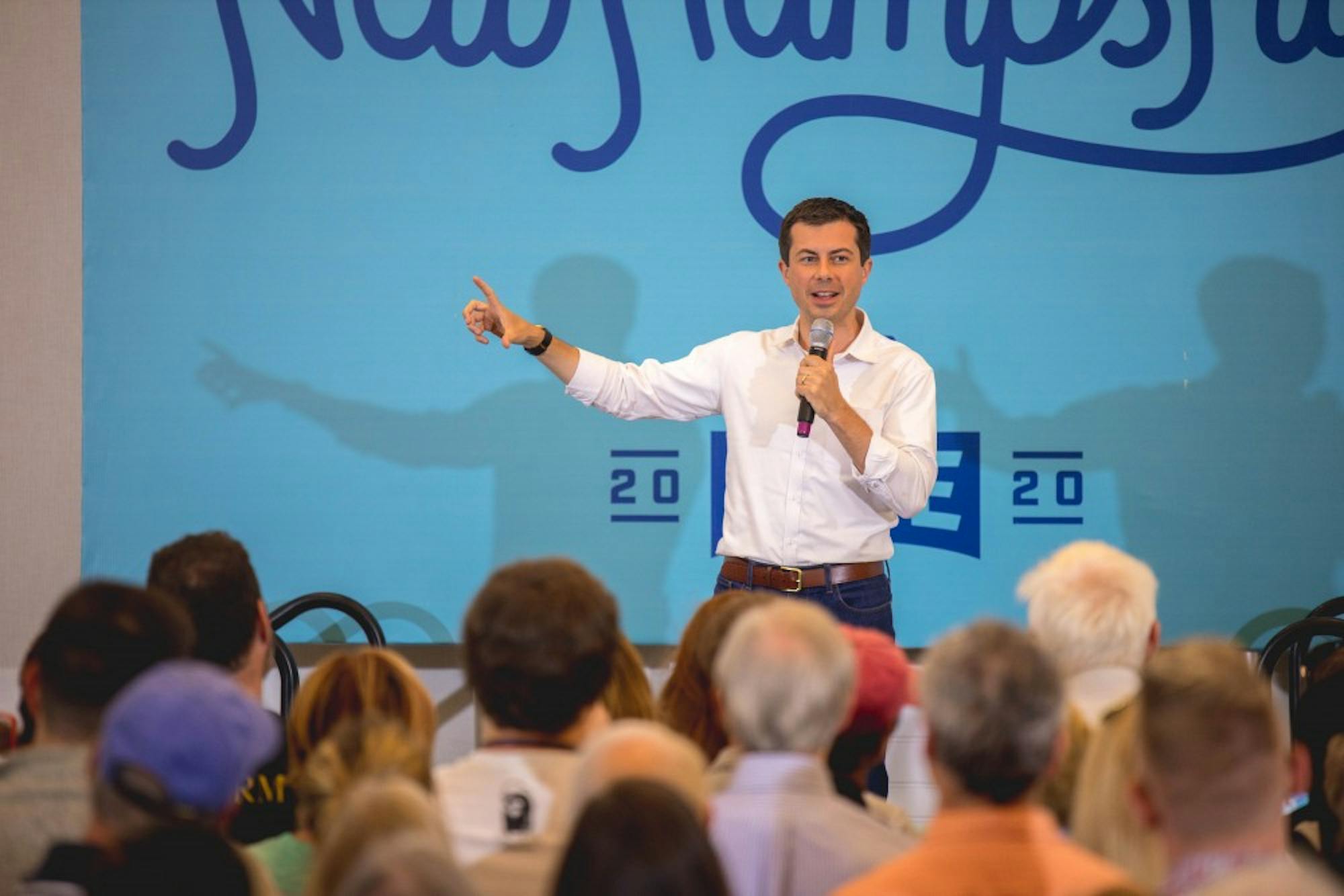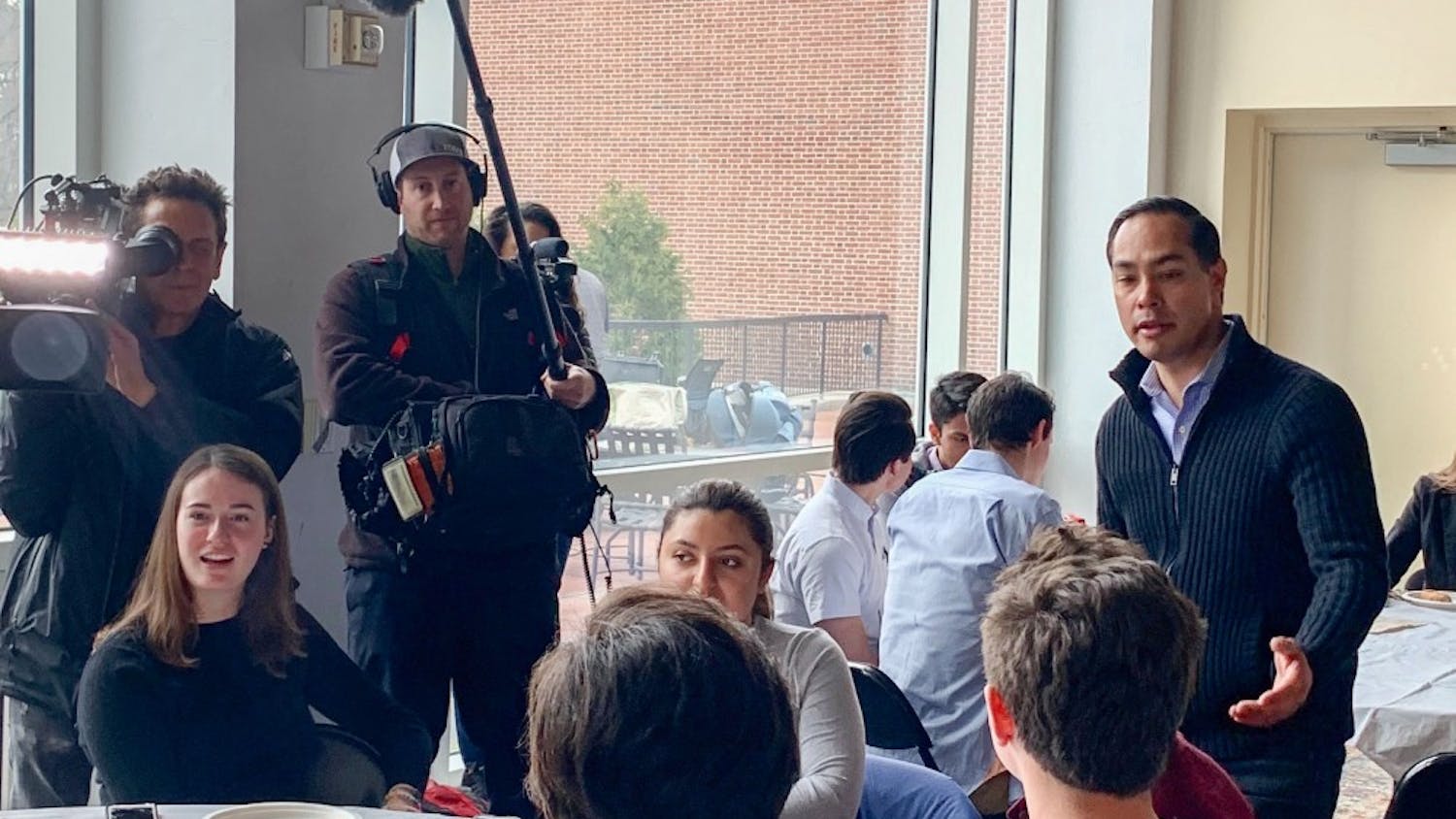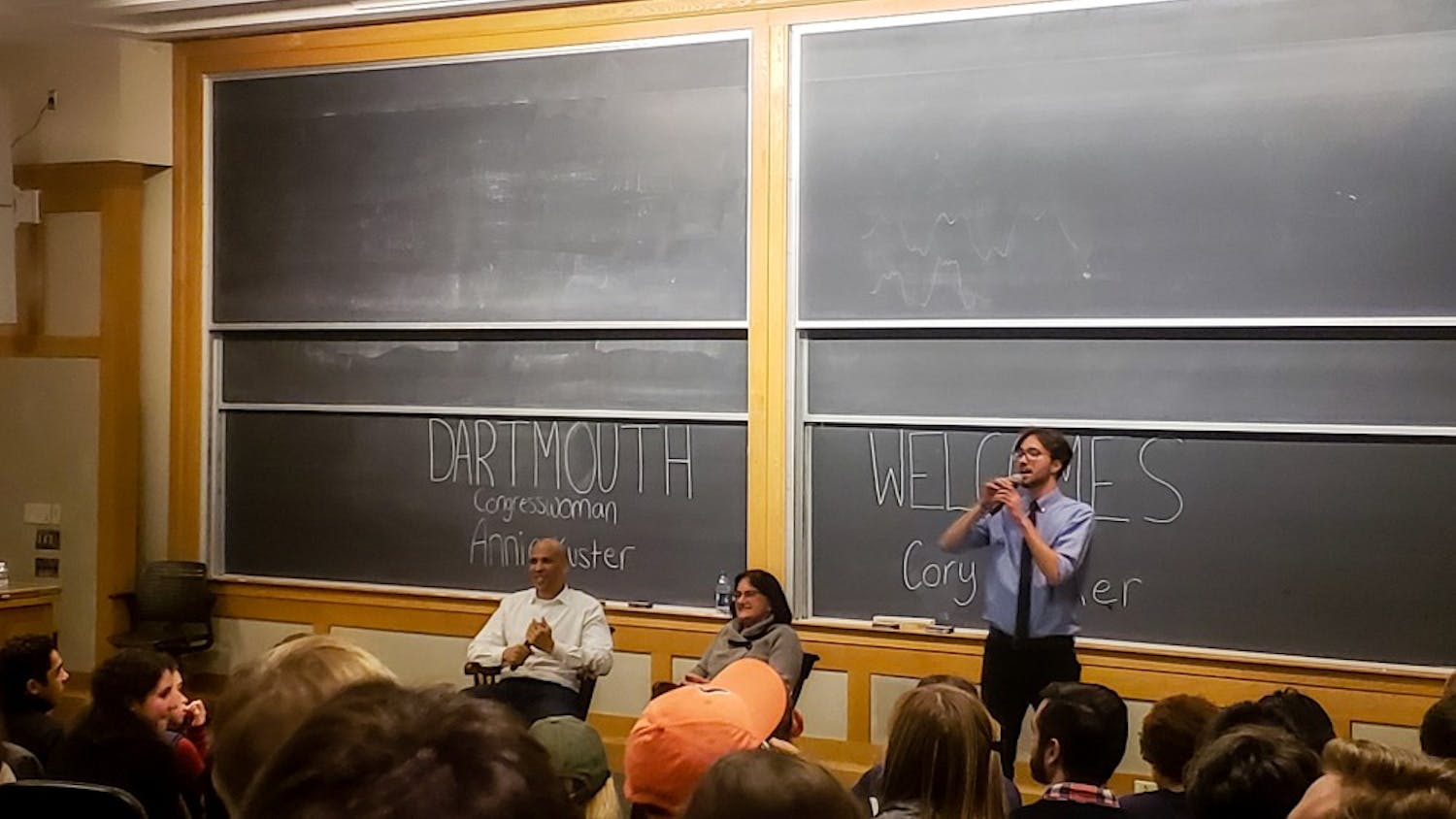Last Saturday, Pete Buttigieg, the mayor of South Bend, IN and a candidate for the Democratic presidential nomination, spoke at a campaign event at the Hanover Inn. During the 45-minute event, Buttigieg covered a wide variety of topics, ranging from mental health and gun control to cybersecurity and the use of military force.
One of the younger candidates in the large field of Democratic candidates, Buttigieg has received significant attention in the early months of the primary, especially given his resume that includes a Rhodes scholarship, eight years as an intelligence officer in the United States Naval Reserve and seven years as the mayor of a Midwestern city. But recent polling shows Buttigieg lagging behind the current leaders in the nomination race.
After the event, The Dartmouth sat down with the South Bend, IN mayor for an interview on topics important to young voters, such as his views on American exceptionalism and New Hampshire House Bill 1264, a state law passed in 2018 that could make it more difficult for college students from out-of-state to vote in New Hampshire next year.
Many students at Dartmouth may not be able to vote in New Hampshire in the next election due to a recently-passed state law that could restrict out-of-state students from voting here. As president, what would you do to protect voting rights?
PB: This is the kind of voter suppression that I'm talking about when I call for a new Voting Rights Act. Some of it is racially motivated. What we see here is it’s motivated on a partisan basis by people who think they will lose if students are able to vote. And so when I talk about prioritizing enforcement of voting rights, this is exactly the kind of cynical maneuver that I’m seeking to reverse.
What would you tell a young person who fears that their children might be worse off than they are?
PB: Well, that’s something I’m powerfully motivated to work on. I guess my basic message is, it’s not too late, but we have to act. If we don't do something to make our economy more equitable, if we don't do something to make our climate more livable, then we should absolutely be worried that that will happen. But it's up to us. These are all the consequences of political choices. There's no cosmic force changing the climate, or constraining our economic future, or preventing us from dealing with gun violence or keeping us unhealthy. These are choices that have been made and choices that could be made differently.
As president, how would you strengthen prospects for social and economic mobility for young people?
PB: Well first of all, social and economic mobility largely depend on having healthy public infrastructure. That's everything from making sure clean, safe drinking water is in every neighborhood to making sure we have good public schools. It is unfortunate to see that the best places to live out the American Dream of social mobility are no longer in America. I think that has to change. We have spent the last 40 years disinvesting in public things like infrastructure and education for the purpose of funding giant tax cuts for the wealthiest. That has consequences, and it has made it harder for people to get ahead, even though the idea of getting it was one of the fundamental ideals of this country.
Many Americans have seen the election of President Donald Trump as a rejection of what he called career politicians and the liberal elite. Given your unique position as both a Midwestern mayor and a Harvard-educated Rhodes scholar, how would you balance the oftentimes conflicting desires of the American electorate as president?
PB: Well, like the President, I went to an Ivy League school, but, unlike the President, I live in a middle-class neighborhood and I'm a product of the American middle class. I think we need to come up with solutions that are going to work broadly for Americans across class lines, but with particular attention to supporting working Americans and promoting social mobility. We don't have to be divided around these things; it's just whether our leaders choose to divide us. And the irony is that many of these values that have come up in recent debates could be unifying values. The idea of fairness, the idea of social mobility, the idea of patriotism, even, could be a unifying force if managed in the right way by a good president.
Many think that young people today are more likely to be critical of the United States than older generations are. Do you believe America is exceptional, and, as president, how would you balance a positive outlook for the country with a recognition of its darker moments?
PB: I think America has always experienced the struggle between our ideals and our reality. I think the important thing is to insist that our ideals are good ones and demand that we've come nearer to living them out. The ideals, for example, spelled out in the Declaration of Independence and the Constitution are ones that we can all rally around. It's just that they haven't actually been available to many Americans. And it's not a question of whether America is good or bad, it's a question of how good we can make America.
In your talk, you mentioned a few issues that you believe are the biggest ones facing the country. Is there an issue you pinpoint as being the most important facing the next generation, specifically? If elected, how would you address it?
PB: Well, I think the longer you're planning to be here the more you have to lose from climate change, so that's something that looms larger, especially from a generational perspective. I also think that younger Americans have a lot at stake in this question of deficits and the debt. It's not something Democrats talk about as much, but it's something we need to act on, and I would argue that most of the problems have been created by irresponsible tax cuts for the wealthiest.
This interview has been edited for clarity.
Eileen (Eily) Brady is a '21 from Chicago who studies government and romance languages. Eily loves travel, politics, iced tea and her dogs, Mac and Charlie. She is thrilled to be reporting the news for The Dartmouth.




